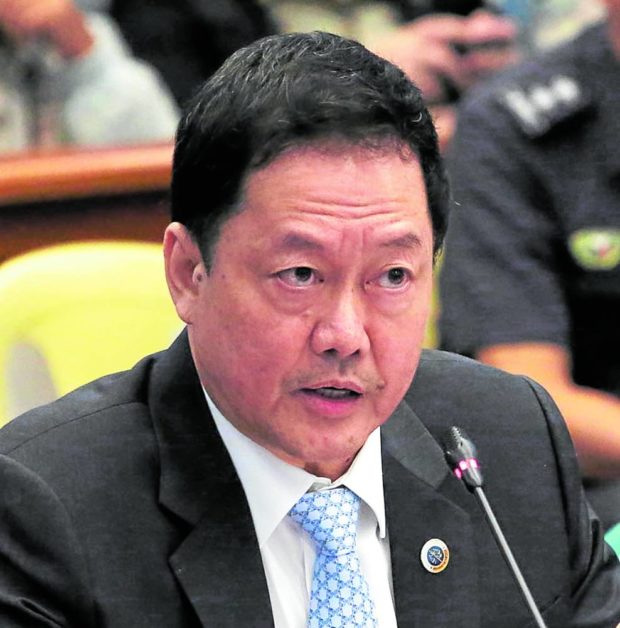Solgen, LGUs say no ‘pay-first-before-complaining’ policy for traffic violators

Menardo Guevarra FILE PHOTO
MANILA, Philippines–Solicitor General Menardo Guevarra on Tuesday said he is not aware that there exists a policy requiring traffic violators to pay the penalty or fine before complaining.
Guevarra made the statement during the continuation of the oral argument regarding a question on the legality of the No Contact Apprehension Policy (NCAP).
Associate Justice Amy Lazaro-Javier asked if there was such a policy after her colleague Associate Justice Samuel Gaerlan talked about his experience after his driver was caught beating the red light in Parañaque.
“Ako mismo pumunta tapos sasabihin ng mga tao dun magbayad ka muna. Ganun eh, iinit lang ang ulo mo kaya gagawin mo babayad ka na lang. Una, bakit napakamahal, I don’t know why the penalties sa NCAP napamakahal [I personally went there (traffic bureau) and the people there said I should pay first. Of course, you will be annoyed so you will just pay. Why are the penalties for NCAP very expensive],” Gaerlan said.
“Do you train your people to be polite? No one among your staff is saying pay first before you complain,” Lazaro-Javier asked.
Lawyers from Quezon City, Manila, and Muntinlupa all said they train their people, and they do not have such policy.
On the other hand, Atty. Pancho Vasquez from Parañaque also said they do not have such a policy.
“I apologize. I will take it upon myself to insist that it will never happen again under my watch. We also do not have such a policy [of paying first before complaining],” Vasquez said.
The NCAP utilized CCTV and digital cameras to identify and apprehend traffic violators through videos and images of their violations.
Once a violation is detected, the LGU concerned issue traffic citation tickets and mail them directly to the vehicle’s registered owners.
Non-payment of fines within seven days means that their vehicles will not be accommodated for re-registration.
The oral argument is still ongoing.
RELATED STORIES:
SC asked to stop no-contact apprehension policy
SC temporarily stops no contact apprehension program